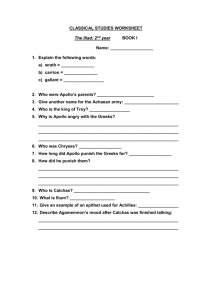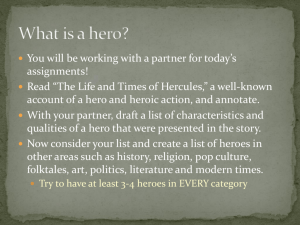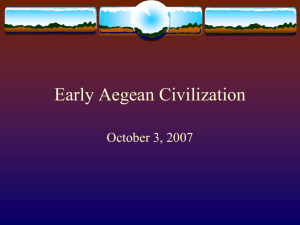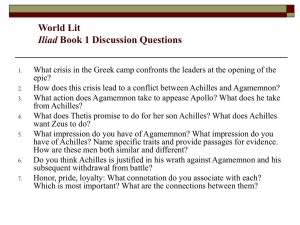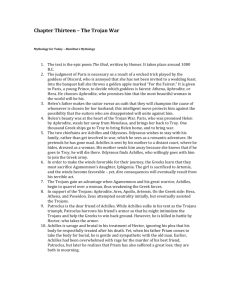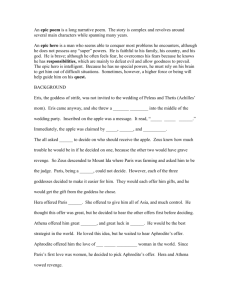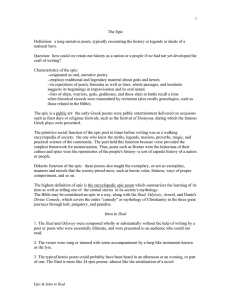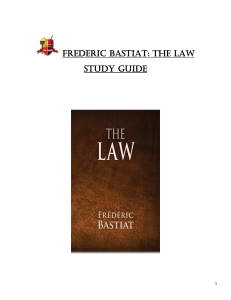Background of the Iliad.doc
advertisement
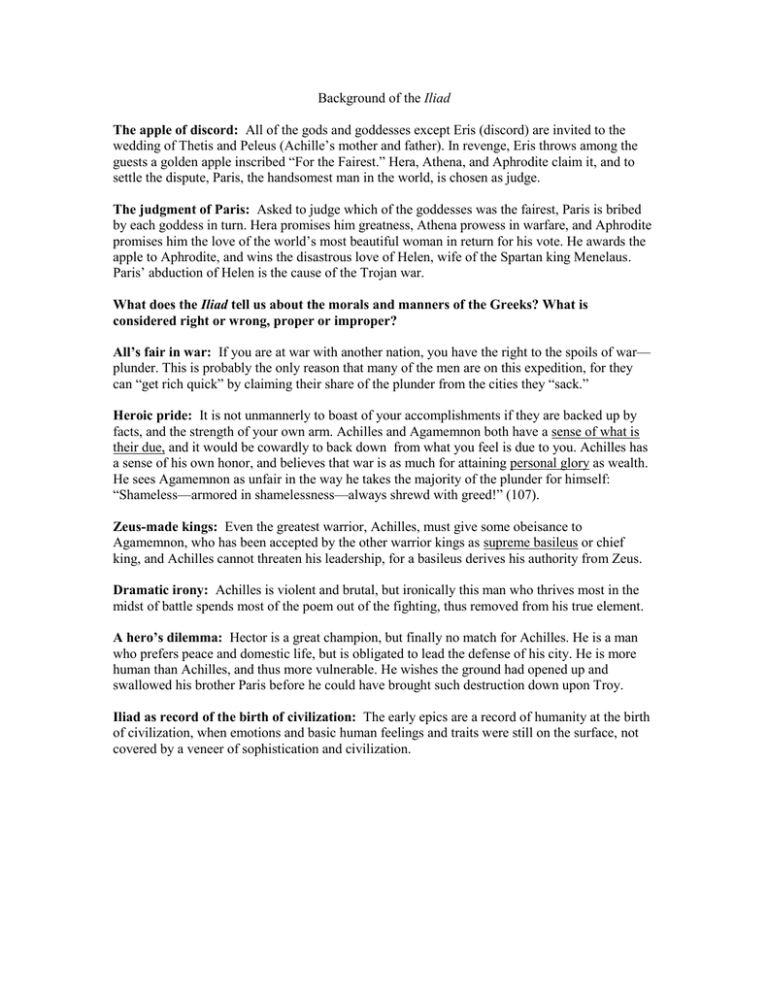
Background of the Iliad The apple of discord: All of the gods and goddesses except Eris (discord) are invited to the wedding of Thetis and Peleus (Achille’s mother and father). In revenge, Eris throws among the guests a golden apple inscribed “For the Fairest.” Hera, Athena, and Aphrodite claim it, and to settle the dispute, Paris, the handsomest man in the world, is chosen as judge. The judgment of Paris: Asked to judge which of the goddesses was the fairest, Paris is bribed by each goddess in turn. Hera promises him greatness, Athena prowess in warfare, and Aphrodite promises him the love of the world’s most beautiful woman in return for his vote. He awards the apple to Aphrodite, and wins the disastrous love of Helen, wife of the Spartan king Menelaus. Paris’ abduction of Helen is the cause of the Trojan war. What does the Iliad tell us about the morals and manners of the Greeks? What is considered right or wrong, proper or improper? All’s fair in war: If you are at war with another nation, you have the right to the spoils of war— plunder. This is probably the only reason that many of the men are on this expedition, for they can “get rich quick” by claiming their share of the plunder from the cities they “sack.” Heroic pride: It is not unmannerly to boast of your accomplishments if they are backed up by facts, and the strength of your own arm. Achilles and Agamemnon both have a sense of what is their due, and it would be cowardly to back down from what you feel is due to you. Achilles has a sense of his own honor, and believes that war is as much for attaining personal glory as wealth. He sees Agamemnon as unfair in the way he takes the majority of the plunder for himself: “Shameless—armored in shamelessness—always shrewd with greed!” (107). Zeus-made kings: Even the greatest warrior, Achilles, must give some obeisance to Agamemnon, who has been accepted by the other warrior kings as supreme basileus or chief king, and Achilles cannot threaten his leadership, for a basileus derives his authority from Zeus. Dramatic irony: Achilles is violent and brutal, but ironically this man who thrives most in the midst of battle spends most of the poem out of the fighting, thus removed from his true element. A hero’s dilemma: Hector is a great champion, but finally no match for Achilles. He is a man who prefers peace and domestic life, but is obligated to lead the defense of his city. He is more human than Achilles, and thus more vulnerable. He wishes the ground had opened up and swallowed his brother Paris before he could have brought such destruction down upon Troy. Iliad as record of the birth of civilization: The early epics are a record of humanity at the birth of civilization, when emotions and basic human feelings and traits were still on the surface, not covered by a veneer of sophistication and civilization.
